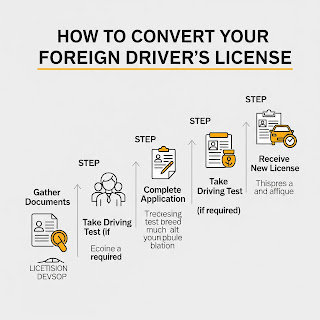GOSI (Social Insurance) – What Expats Need to Know
If you’re an expat living and working in Saudi Arabia, you've probably heard of GOSI — but what is it exactly, and how does it affect you?
Whether you're new to the Kingdom or have been here for years, understanding GOSI (General Organization for Social Insurance) is essential. While it primarily benefits Saudi nationals, it also applies in part to expatriate workers, especially in the event of workplace accidents.
This guide covers what GOSI is, why it matters, how it affects your employment, and how to check your registration and benefits online.
📌 What is GOSI?
GOSI stands for the General Organization for Social Insurance. It’s a Saudi government agency that manages social insurance programs for both Saudis and non-Saudis working in the public and private sectors.
GOSI was established to ensure that employees are financially protected in certain situations like:
-
Old age (pensions)
-
Work-related injuries or disabilities
-
Death (for Saudi workers)
-
Unemployment (Saudis only)
These protections are part of a broader Saudi labor system that aligns with Vision 2030 goals of supporting workers and increasing transparency in employment.
🧑💼 Is GOSI Mandatory for Expats?
Yes, GOSI is mandatory for all employees in Saudi Arabia — but expats are only covered under specific parts of the system.
For Saudi nationals, GOSI provides retirement pensions, unemployment support, and insurance in case of injury, disability, or death.
For non-Saudi (expat) workers, only the Occupational Hazards Branch applies. This means expats are:
-
Not eligible for pension benefits
-
Not eligible for unemployment insurance
-
Not eligible for death or disability payouts (unless due to a work accident)
-
Only covered for work-related injuries or accidents
💸 Who Pays GOSI Contributions?
The GOSI contribution system differs for Saudi and non-Saudi employees:
For Non-Saudis (Expats):
-
Only the employer contributes
-
2% of the expat’s salary is paid to GOSI for occupational hazard insurance
✅ No deductions are made from the expat’s salary.
For Saudi Nationals:
-
Employee pays: 9% of salary
-
Employer pays: 11% (9% + 2% for hazards)
These contributions cover social security, retirement, and work injury protection for Saudi employees.
🛡️ What Benefits Do Expats Get from GOSI?
Although expats have limited access to GOSI benefits, the occupational hazard coverage is still significant and can offer essential protection. Here’s what it includes:
1. Work Injury Compensation
If you're injured during working hours or while performing a job-related task, GOSI will:
-
Cover medical treatment costs
-
Provide a monthly wage compensation if you’re temporarily disabled
-
Pay a lump-sum or ongoing pension if you're permanently disabled
2. Death from Work Injury
If an expat dies due to a work-related accident, their family may be eligible for compensation through GOSI, depending on the employer’s compliance and proper registration.
🔍 How to Check GOSI Status Online
To make sure you’re properly registered and your records are accurate, you can check your GOSI status online.
✅ Steps:
-
Go to https://www.gosi.gov.sa
-
Login using your Nafath (Absher-linked account)
-
Go to “Contribution History”
-
You’ll see:
-
Your employer’s name
-
Job title
-
Salary reported
-
GOSI registration start date
-
This information helps verify whether your employer is following labor laws. If your job title, salary, or employer details are missing or incorrect, take action.
🧾 What If You're Not Registered?
Unfortunately, some companies fail to register expat employees with GOSI — either due to negligence or cost-cutting.
If you find that you’re not listed in the GOSI system, here's what to do:
🔁 What You Can Do:
-
Contact your HR or employer to resolve the issue
-
Visit the nearest GOSI office for assistance
-
File a complaint with the Ministry of Human Resources and Social Development (MHRSD) via the Qiwa or Mudad platform
🧠 GOSI and End-of-Service Benefits (EOSB)
A common myth is that GOSI handles end-of-service benefits (EOSB). This is false.
End-of-service benefits are calculated and paid directly by the employer under Saudi Labor Law, not through GOSI.
However, your GOSI record is useful for:
-
Proving your work history
-
Verifying your job title and start date
-
Supporting claims in case of labor disputes
⚠️ Common GOSI Issues Expats Face
Even if you’re registered with GOSI, it’s important to make sure your information is accurate and up to date.
Common Problems:
-
Incorrect job title (e.g., “laborer” instead of “engineer”)
-
Underreported salary
-
Duplicate or outdated records
-
No start date or employer listed
These issues can affect:
-
Your ability to claim work injury benefits
-
Future legal claims (e.g., unpaid EOSB)
-
Visa renewals or labor disputes
📝 How to Fix GOSI Errors
If you notice incorrect information in your GOSI profile:
-
Request HR to update your record through the GOSI online system.
-
If the employer refuses or ignores your request, you can:
-
Lodge a complaint via https://www.qiwa.sa
-
Visit your nearest GOSI office in person with your documents
-
🏢 Visiting a GOSI Office
There are GOSI offices in all major cities in Saudi Arabia.
📞 Contact Details:
-
Website: https://www.gosi.gov.sa
-
Toll-Free Number: 800-124-3344
-
Working Hours: Sunday to Thursday, 8:00 AM to 4:00 PM
-
Services: Walk-in registration issues, contributions, benefits claims
🔐 Is GOSI Safe and Confidential?
Yes. GOSI is a secure and official government platform. All your data is kept confidential and is used for legal and benefit purposes only.
Make sure you never share your Nafath or Absher credentials with anyone.
🌍 Why GOSI Still Matters for Expats
Even though expats don’t receive retirement benefits, GOSI still plays a key role in:
-
Ensuring legal employment
-
Protecting against work injuries
-
Verifying employment status
-
Supporting labor disputes and legal claims
A well-maintained GOSI record helps secure your labor rights, even if you're planning to move to a new job, claim end-of-service pay, or report mistreatment.
.png)



Comments
Post a Comment